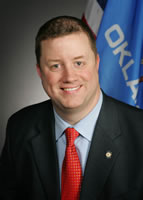In order to provide equal access and equal opportunity to people with diverse abilities, this site has been designed with accessibility in mind. Click here to view
Senate Committee Votes to Establish Curfew for Drivers With Intermediate Class D Licenses

The Senate Public Safety and Homeland Security Committee on Tuesday approved legislation that would restrict drivers with intermediate Class D licenses to a curfew of 10 p.m. for one year after becoming a licensed driver. The measure would also extend the amount of required driving training for parent-taught drivers from 40 to 50 hours.
House Bill 1599, authored by Sen. Dan Newberry and Rep. Daniel Sullivan, would allow intermediate Class D license holders to drive after 10 p.m. only if they are accompanied by an adult over the age of 21 or are on their way home from work, school or church. If Class D licensees receive driver’s education training, the curfew would only apply for the first six months after drivers are licensed.
Newberry noted that risk figures from the National Highway Traffic Safety Administration (NHTSA) show the fatality rate for nighttime driving amongst 16 year-olds is two times higher than during daylight hours. States with nighttime driving restrictions show crash reductions of 40 to 60 percent during restricted driving hours.
“This legislation will help ensure that young drivers have a greater level of experience and comfort behind the wheel before gaining full driving privileges,” said Newberry, R-Tulsa. “Drivers between the ages of 16-19 have higher accident rates than older drivers, and those rates are even greater after 10 p.m. We want to instill the importance of caution and minimize risk to our children and communities.”
According to the National Highway Traffic Safety Administration, teens have higher crash rates than drivers of any other age. Drivers age 15-20 accounted for 12.9 percent of all the drivers involved in fatal crashes and 16 percent of all the drivers involved in police-reported crashes in 2006. Sixteen year-olds are three times more likely to die in a motor vehicle crash than the average of all other drivers.
“This bill is about providing new drivers with the safest experience possible while they are learning to drive,” Newberry said. “The first year of licensing is the most dangerous. Introducing driving privileges gradually can ensure teens’ safety while they gain the crucial experience necessary to be safe drivers for life.”
 Oklahoma Senate
Oklahoma Senate

